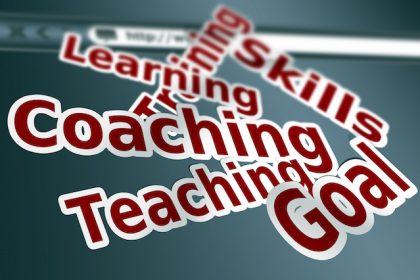The International Coaching Federation published a statement of diversity, inclusion, belonging, and justice at https://coachfederation.org:
“ICF Members and Credential-holders live and work in more than 140 countries and territories. ICF is a vibrant global community committed to the shared vision of making coaching an integral part of a thriving society. Our mission is to lead the global advancement of coaching. To do this, we must reflect on our blind spots and be aware of opportunities for improvement. We cannot ignore the challenges that many coaches and coaching clients face due to systemic problems in their communities. 
As members of the ICF community, we ascribe to the core values of integrity, excellence, collaboration, and respect. The foundation of these values is a shared commitment to diversity, inclusion, belonging, and justice.
We will place diversity, inclusion, belonging, and justice at the forefront of every decision we make within our Association. As we continue the journey toward our vision, we will recommit ourselves to valuing the unique talents, insights, and experiences that every coach and client brings to the world.”
The ICF’s Code of Ethics, Core Competencies, and PCC Markers all address diversity. The following are the ones that jump out at me – see what you think!
· From the Code of Ethics:
11. Am aware of and actively manage any power or status difference between the Client and me that may be caused by cultural, relational, psychological, or contextual issues.
23. Hold responsibility for being aware of and setting clear, appropriate, and culturally sensitive boundaries that govern interactions, physical or otherwise.
25. Avoid discrimination by maintaining fairness and equality in all activities and operations, while respecting local rules and cultural practices. This includes, but is not limited to, discrimination on the basis of age, race, gender expression, ethnicity, sexual orientation, religion, national origin, disability or military status.
28. Am aware of my and my clients’ impact on society. I adhere to the philosophy of “doing good,” versus “avoiding bad.”
· From the Core Competencies:
1. Demonstrates Ethical Practice
Definition: Understands and consistently applies coaching ethics and standards of coaching
1. Demonstrates personal integrity and honesty in interactions with clients, sponsors and relevant stakeholders
2. Is sensitive to clients’ identity, environment, experiences, values and beliefs
3. Uses language appropriate and respectful to clients, sponsors and relevant Stakeholders
2. Embodies a Coaching Mindset
Definition: Develops and maintains a mindset that is open, curious, flexible, and client-centered
2. Engages in ongoing learning and development as a coach
3. Develops an ongoing reflective practice to enhance one’s coaching
4. Remains aware of and open to the influence of context and culture on self and others
5. Uses awareness of self and one’s intuition to benefit clients
4. Cultivates Trust and Safety
Definition: Partners with the client to create a safe, supportive environment that allows the client to share freely. Maintains a relationship of mutual respect and trust.
1. Seeks to understand the client within their context which may include their identity, environment, experiences, values, and beliefs
2. Demonstrates respect for the client’s identity, perceptions, style, and language and adapts one’s coaching to the client
6. Demonstrates openness and transparency as a way to display vulnerability and build trust with the client
6. Listens Actively
Definition: Focuses on what the client is and is not saying to fully understand what is being communicated in the context of the client systems and to support client self-expression
1. Considers the client’s context, identity, environment, experiences, values, and beliefs to enhance understanding of what the client is communicating
7. Evokes Awareness
Definition: Facilitates client insight and learning by using tools and techniques such as powerful questioning, silence, metaphor, or analogy
1. Considers client experience when deciding what might be most useful
3. Asks questions about the client, such as their way of thinking, values, needs, wants and beliefs
8. Helps the client identify factors that influence current and future patterns of behavior, thinking or emotion
· From the PCC Markers:
4.3: Coach acknowledges and supports the client’s expression of feelings, perceptions,
concerns, beliefs, or suggestions.
5.1: Coach acts in response to the whole person of the client (the who).
5.4: Coach demonstrates curiosity to learn more about the client.
6.1: Coach’s questions and observations are customized by using what the coach has learned about who the client is or the client’s situation.
6.5: Coach inquiries about or explores how the client currently perceives themself or their world.
7.1: Coach asks questions about the client, such as their current way of thinking, feeling, values, needs, wants, beliefs or behavior.
8.6: Coach partners with the client to consider how to move forward, including resources, support, or potential barriers.
An Opportunity
Number 28 in the ICF Code of Ethics calls on coaches to do good. What does that mean? How can we do that? It starts with the statement in the code on being aware of our and our clients’ impact on society. For how we do that, consider these five points pulled from our Diversity and Equity in Coaching CCE program:
1. Learn about diversity
a. Research and Read
b. Conferences and Workshops
c. Conversations
2. Self-assess and Strategize
a. Where are you at Now
b. What is your Ideal
c. Plan how to achieve it
3. Self-reflective Practice
a. Schedule time for it
b. Options on How include: journaling, taking self-assessments, reflecting on coaching sessions, and more
c. Develop Awareness through research, conversations, reflection on perceptions, and by engaging with a wider rage of people
4. Communicate Openness
a. Words invite people in or can exclude – review your website and social media to identify what you want to change
b. Images – review the pictures you use for diversity
c. Engagement – participate in the tough conversations with transparency and vulnerability
5. Expand Access
a. Non-profits – look for ways to offer coaching services to the staff and the constituency of nonprofit organizations
b. Sliding-scale – consider offering a sliding-scale fee for coaching services to make it accessible for more people
c. Collaboration – ICF Foundation and ICF chapters often partner to provide coaching for those who cannot access it otherwise; either through those efforts or with colleagues, work together to provide coaching to the underserved
Diversity and Equity are the right thing and each of us has our own areas of influence and opportunity to do good through our coaching services.
Interested in learning more? Explore the Diversity and Equity in Coaching ICF-approved CCE program at https://www.coachcert.com/training/cce-programs/diversity-and-equity.html.
Engage in an interactive learning experience with six online classes coupled with online assignments and continued discussion to increase overall learning.
1. Awareness – discuss and develop self and other awareness of diversity and equity in coaching.
2. Personal Assessment – explore concepts of bias and areas of personal development.
3. Business Assessment – assess your business from a diversity and equity perspective and access techniques to improve.
4. Accessibility Expands Reach – review how you can support access and provide coaching to a wider audience
5. Tools and Techniques – explore and incorporate diversity and equity best practices supported by ICF’s coaching competencies and ethics.
6. Long-term Possibilities – discuss and plan for sustainability related to diversity and equity in coaching.



